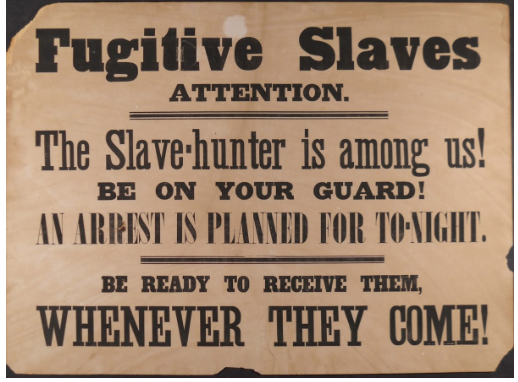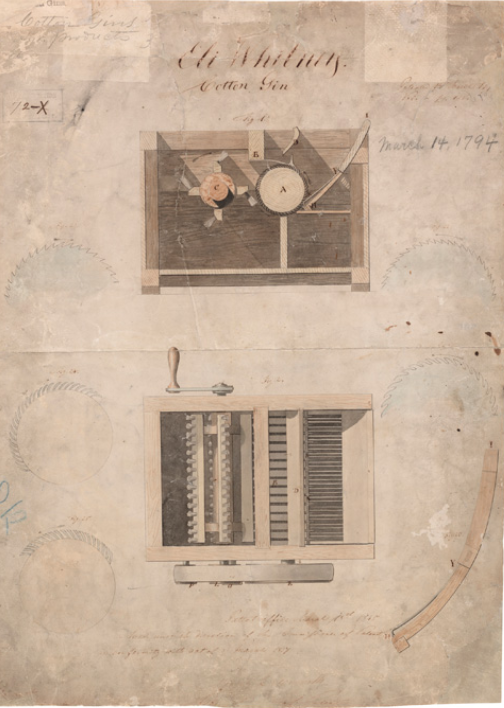Voice of Oppression
Fugitive Slave Law of 1793
According to history.com the Fugitive Slave Act 1793 authorized local governments to seize and return escapees to their owners and imposed penalties on anyone who aided in their flight.
At the time of this act there were 5 Northern states (Vermont, New Hampshire, Rhode Island, Massachusetts and Connecticut ) that had already abolished slavery. This raised a concern that the free states would be options for slaves to escape from slavery. But according to the Constitution (Article 4, Section 2, Clause 3) these concerns didn’t have merit because it said that owners had the right to search for their slaves within the borders of free states.

The Daily Gazette ~ May 2014

Warning Poster of Slave Hunters in the area~ MarkMaynard.com~ 2015.
Communication for Action
Oppostition -Fugitive Slave Law
Opposition to the Fugitive Slave Act argued that this would only lead to bounty hunters evading free states. Many that opposed this act set up safe houses and networks that would assist slaves. It would be acknowledged that many free blacks were illegally captured and sold into slavery. Solomon Northup is an example as he was kidnapped in 1841 and taken to Louisiana to live as a slave for 12 years.
